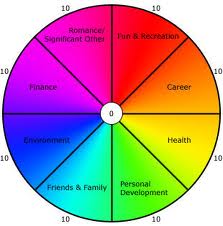DRA’s TOP PICKS
DRA embraces and advocates a number of key principles that are applicable both to our private and public lives. Here are some more of our most treasured life principles:
- DO NOT ALLOW OUR AMYGDALA TO BE HIJACKED
We must get to know our emotional triggers and develop effective emotional-control tools to avoid an amygdala hijack:
- Understand that an amygdala hijack occurs when our amygdala, the brain’s emotional response centre, takes control, causing us to either flee from a situation or “lose it in the heat of the moment” by seriously overreacting.
- Get to know and understand what triggers us emotionally, for example people, words, actions, behaviours, and situations.
- Develop tools to stop or control an amygdala hijack:
- Take a breath or practise deep breathing.
- Wait for 6 seconds so that hijack-inducing brain chemicals can defuse.
- Focus our thoughts to activate our thinking brain.
- Visualize a pleasant image.
- Move away.
- MANAGE NEGATIVE EMOTIONS
Everyone feels negative emotions like frustration, embarrassment, anger, anxiety, vexation, irritability, and sadness:
- Make a choice to remain positive, even in the most difficult situations.
- Be proactive and intentional about letting go of negative past experiences.
- Hold. Release
- Absorb the fact that life happens and we cannot help being bombarded
- Recognize that we have control over the length of time we hold and release negative thoughts, emotions, and impact of our experiences
- Shorten the hold-release period by immediately releasing these negative elements.
- STAY IN THE BLUE ZONE
Every verbal interaction comprises noises[distractions] and messages[issues], responding to noise will take us to the red [irrational] zone while responding to the message will take us to the calm [rational] zone:
- Stay in the calm, rational zone.
- Develop the skill to pull the message out of the noise and edit out the noise.
- Hit the pause button [emotional-control tool] to stop ourselves from going into the red zone.
4.BALANCE THE WHEEL OF OUR LIFE

Our life is like a wheel that is made up of a number of segments including spirituality, recreation, educational development, health and wellness, self-development, financial wellness, career development, and relationships:
- Life should be lived meaningfully and with an acceptable level of balance.
- The Wheel of Life is an assessment tool that can give us a snapshot of the level of balance in our lives and identify areas that we may need to improve.
- A flight plan or life plan is an essential tool for personal development and success.
Click here to fill out an interactive balance wheel for your life.
- OPERATE FROM OUR CIRCLE OF INFLUENCE
- Differentiate between what is under our control (our circle of concern) and what is not under our control (our circle of influence).
- Operate from our circle of influence by being proactive rather than reactive.
- Respond to things in our circle of concern by asking the question “What is the plan?”
- CONTROL THE CONVERSATION
Whoever speaks the most controls the conversation:
- Decontaminate our minds of self-centred thinking, personal biases, or anything that can contaminate or poison our listening: For example, someone tells us about his/her experience and we see it entirely through the eyes of our own experience.
- Use empathy statements: For example, “I am sorry that this happened to you”; “I would feel the same way if this had happened to me”; “I understand your concern”.
- Choose words carefully, avoiding words that infuriate and choosing words that motivate.
- FOCUS THE MAJORITY OF OUR EFFORT ON PROBLEM SOLVING
Focus 20% of our effort on the problem and 80% on the solution:
- Live in the solution.
- Focus on finding the best or most practical solution.
- Expend the majority of our effort on solving the problem: Gather only information that is needed to arrive at the right solution.

